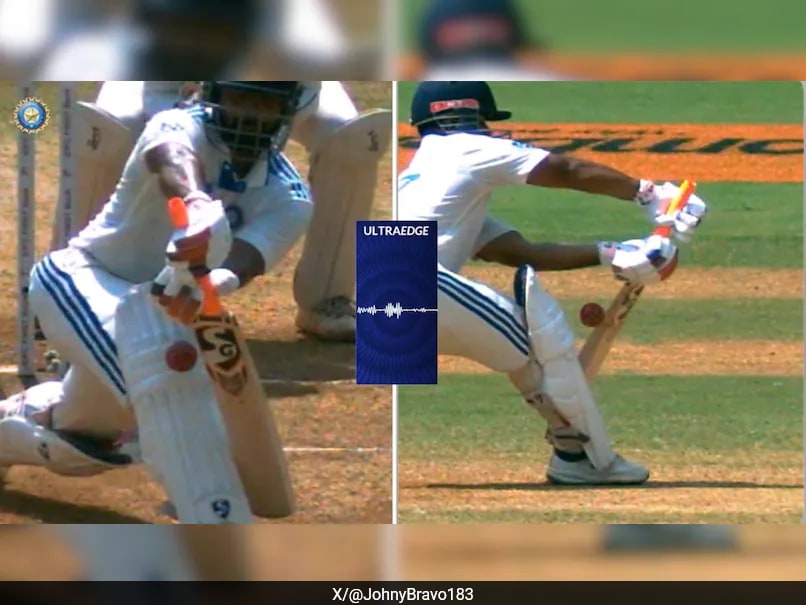India’s wicket-keeper batter Rishabh Pant’s valiant effort to salvage a consolation victory in the third and final Test against New Zealand was cut short by a controversial dismissal that has sparked debate in the cricketing world.
After India’s top order collapsed, losing five wickets for just 29 runs, Pant launched a counter-attacking knock, scoring 64 runs off 57 balls in the chase of 147 runs. However, his innings was halted when he was adjudged caught behind off Ajaz Patel’s bowling.
New Zealand appealed for a catch by the wicket-keeper, but the umpire initially remained unmoved. However, New Zealand skipper Tom Latham convinced Patel to review the decision. Upon assessment, it was found that a spike was witnessed on the snicko meter when the ball passed the bat. However, at the same time, Pant’s bat had also hit his pads.
Despite the dilemma, the third umpire decided to give the decision in New Zealand’s favor. The dismissal sparked outrage on social media, with former South Africa captain AB de Villiers highlighting the “grey area” in the DRS technology.
“Controversy! Little grey area once again. Did Pant get bat on that or not? Problem is when the ball passes the bat at exactly the same time a batter hits his pad snicko will pick up the noise. But how sure are we he hit it? I’ve always worried about this and here it happens at a huge moment in a big Test match. Where’s hotspot?!”, De Villiers posted on Twitter.
Disappointed with the third umpire’s call, Pant had a brief chat with the on-field umpire before taking the heavy and slow walk back to the dressing room. The dismissal proved to be a turning point in the match, as India eventually lost by 128 runs.
The controversy surrounding Pant’s dismissal has raised questions about the reliability of the DRS technology and the need for further advancements to eliminate such grey areas.






